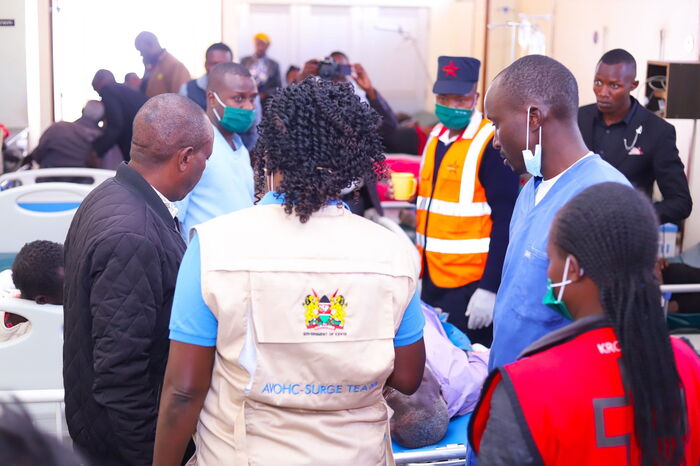More than 60 students from Kalyet Secondary School in Kericho County were rushed to the hospital on Monday after complaining of severe and persistent stomach pains, which authorities suspect were caused by contaminated food.
The affected students reportedly consumed a meal of maize and beans during Sunday lunchtime. Shortly afterward, some students began experiencing stomach discomfort, which escalated into more severe symptoms.
By Monday morning, 47 students, including 9 boys and 38 girls, had been taken to the Londiani Sub-County Hospital for medical attention. Many of the students exhibited symptoms of vomiting that had persisted throughout the night, raising concerns among school staff and parents.
Medical staff at the hospital worked tirelessly to stabilize the students, administering treatments such as antibiotics and intravenous fluids. According to the facility’s medical superintendent, all the students were in stable condition after receiving prompt care.
“We have successfully treated all the students, and they are now stable,” the medical officer told reporters. “However, managing such a large number of patients has stretched our resources. Our outpatient department is already overcrowded, and incidents like these highlight the urgent need for expansion to better handle mass emergencies.”
The hospital warned that if the number of cases continues to rise, it may struggle to accommodate additional patients due to limited space and resources.
This food poisoning incident comes just days after a similar case in the same county. On January 19, over 73 people, including children from Masaita villages, were hospitalized after consuming contaminated fermented milk, locally known as Mursik, during a church graduation ceremony.
Food poisoning incidents related to Mursik and other foods have been a recurring problem in the greater Rift Valley region. In 2020, a similar tragedy unfolded in Mt. Elgon, Bungoma County, where 20 people, including eight children, were hospitalized after drinking contaminated Mursik.
Globally, foodborne illnesses remain a significant health concern. According to the World Health Organization (WHO), approximately 600 million people—nearly one in ten worldwide—suffer from foodborne diseases each year. Tragically, these illnesses result in 420,000 deaths annually, with children under five years old accounting for 40% of the cases and 125,000 fatalities.
The repeated occurrences of food poisoning in Kenya highlight the need for stricter food safety regulations and public education on proper food handling practices to prevent further tragedies.
Join Kenyan Gen z and millennials official 2025 WhatsApp Channel To Stay Updated On time the ongoing situation https://whatsapp.com/channel/0029VaWT5gSGufImU8R0DO30
Tiktok – https://www.tiktok.com/@news.hub88?_t=ZM-8sz45qJid3V&_r=1


